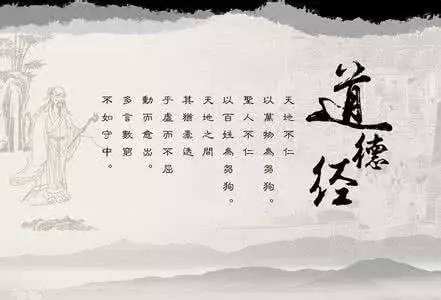Lao Zi
4 min readLao Zi(also spelled Lao Tzu,or Lao Tse)was a famous Chinese philosopher who is believed to have lived in approximately the 4th century B.C.,during the Hundred Schools of Thought and Warring States Periods.He is credited with writing the seminal Taoism work,the Tao Te Ching.He became a popular deity in Taoist religion’s pantheon.His most famous follower,Zhuang Zi,wrote a book that had one of the greatest influences on Chinese Literati,through the ideas of individualism,freedom,carefreeness,and,even if the author never speaks about it,art,which may we11 be the cornerstone of Chinese art.

Lao Zi’s life
Little is known about Lao Zi’s life.His historical existence is strongly debated as is his authorship of the Tao Te Ching.Regardless,he has become an important culture hero to subsequent generations of Chinese people.Tradition says he was born in Ku Prefecture of the state of Chu,which today is Luyi County of Henan province,in the later years of Spring and Autumn Period.
According to the tradition,Lao Zi was an older contemporary of Confucius and worked as an archivist in the Imperial Library of the Zhou Dynasty(1122 BC-256 BC).
Confucius intentionally or accidentally met him in Zhou,near the location of modern Luoyang,where Confucius was going to browse the library scrolls.According to these stories,Confucius,over the following months,discussed ritual and propriety,cornerstones of Confucianism,with Lao Zi.The latter strongly opposed what he felt to be hollow practices.Taoist legend claims that these discussions proved more educational for Confucius than the contents of the libraries.
Afterwards,Lao Zi resigned from his post,perhaps because the authority of Zhou’s court was diminishing.Some accounts claim he travelled west on his water buffalo through the state of Qin and from there disappeared into the vast desert.
These accounts have a guard at the western-most gate convincing Lao Zi to write down his wisdom before heading out into the desert.Until this time,Lao Zi had shared his philosophy in spoken words only.
Lao Zi’s Work and Thought
Lao Zi’s famous work,the Tao Te Ching,has been widely influential in China.
The book is a mystical treatise covering many areas of philosophy,from individual spirituality to techniques for governing societies.
If we refer to this book,we can draw in few lines what and how Lao Zi was thinking.He emphasized a specific“Tao”,which often translates as“the Way,’and widened its meaning to an unnameable inherent order or property of the universe:“The way Nature is.”He highlighted the concept of wu-wei,or“action through inaction.”This does not mean that one should sit around and do nothing;but that one should avoid explicit intentions,strong will,and proactive action and then reach real efficiency by following the way things spontaneously increase or decrease.Actions taken in accordance with Tao(Nature)are easier and more productive than actively attempting to counter the Tao.Lao Zi believed that violence should be avoided when possible,and that military victory was an occasion to mourn the necessity of using force against another living thing,rather than anoccasion for triumphant celebrations.Lao Zi also indicated that codified laws and rules result in society becoming more difficult to manage.
As with most other ancient Chinese thinkers,his way to explain his ideas often uses paradoxes,analogies,reuse and appropriation of ancient sayings.Using ellipsis,repetition,symmetries,rhymes,rhythm,his writings are poetical,dense and often obscure.They often served as a starting point for cosmological or introspective meditations.Many of the aesthetic theories of Chinese art are widely grounded in his ideas and those of his most famous follower:Zhuang Zi.
Although Lao Zi does not have as deep an influence as Confucius does in China,he is still widely respected by the Chinese.Confucius and Lao Zi are the best-known Chinese philosophers in the Western world.
Lao Zi’s Names
The name Lao Zi is an honorific title.Lao means“venerable”or“old.”Zi translates literally as”boy,”but it was also a term for a rank of nobleman equivalent to viscount,as well as a term of respect attached to the names ofrevered scholars.Thus,“Lao Zi”can be translated roughly as“the old master.”
Lao Zi’s personal name was Li er,his courtesy name was Boyang,and his posthumous name was Dan,which means“Mysterious.”Lao Zi is also known as:Elder Dan,Senior Lord,Senior Lord Li,Senior Lord Taishang,Taoist Lord Lao Zi.In the Li Tang Dynasty,in order to create a connection to Lao Zi as the ancestor of the imperial family,he was given a posthumous name of Emperor Xuanyuan,meaning“Profoundly Elementary”;and a temple name of Shengzu,meaning “Saintly/Sagely Progenitor.”








